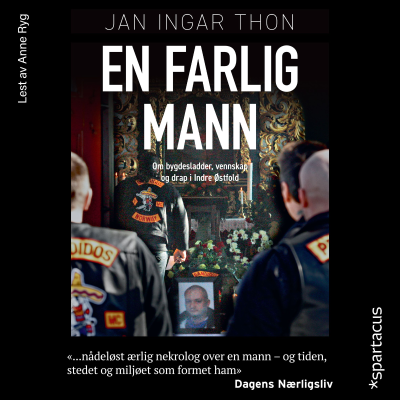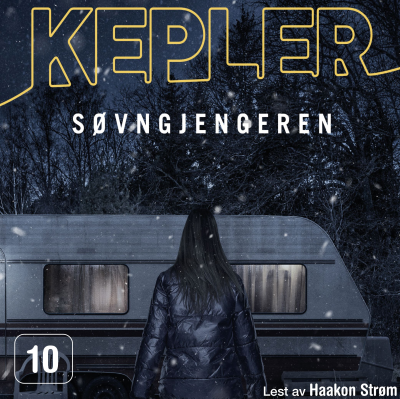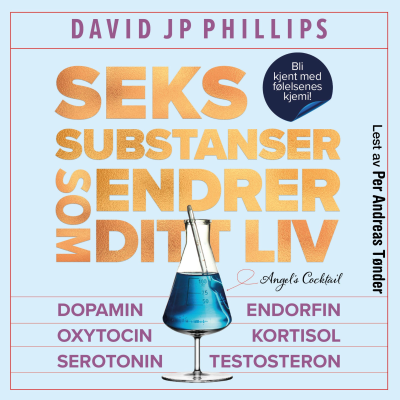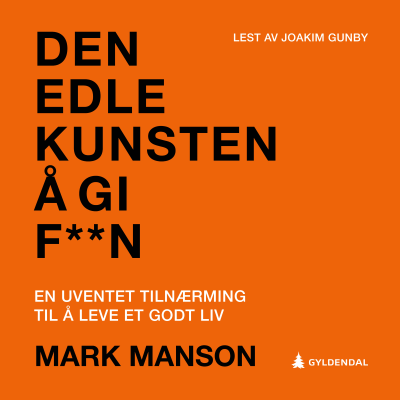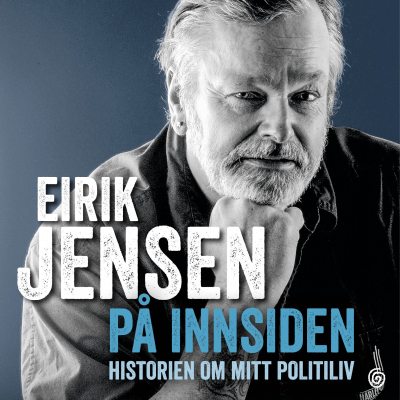
Trainer's Bullpen
engelsk
Teknologi og vitenskap
Prøv gratis i 14 dager
99 kr / Måned etter prøveperioden.Avslutt når som helst.
- 20 timer lydbøker i måneden
- Eksklusive podkaster
- Gratis podkaster
Les mer Trainer's Bullpen
A free expert resource for Law Enforcement Trainers to talk about safety and risk management training Welcome to the Trainer's Bullpen where trainers in Law Enforcement come to hear experts talk about their work, experience, and research into human performance, particularly as it relates to the critical aspects of training motor learning and crisis decision-making. The purpose of the Trainer’s Bullpen is to help bridge the gap between current law enforcement training and the findings of academic research and pedagogical best practices.
Alle episoder
54 EpisoderEP54 ‘Ecological Dynamics in Coaching’ with Dr. Steve Smith
Summary: Dr. Steve Smith is Senior Lecturer in Sport Coaching and Psychology Programme Leader for Sport Coaching and Physical Education and Head of Elite Sport Programme Department of Sport, Exercise and Health at the University of Winchester. Steve’s professional focus is exploring how practice environments shape competitive performance. He is especially passionate about sharing the principles of ecological dynamics with coaches and practitioners. His work spans multiple sports, and he is committed to bridging the gap between theory and applied coaching, helping athletes and coaches better understand the environments that support learning, resilience, and excellence in competition. In this conversation, Steve states that a ‘major reset’ is needed in how coaches and trainers think that people actually learn. He discusses the importance of shifting coaching and training to a nonlinear approach using the ecological dynamics and constraints led methods. Coaches and trainers need to guide intentions and use constraints to create self-organizing, adaptable and agile performers – especially those who must function in highly ambiguous, challenging and high consequence environments – such as law enforcement. Dr. Smith wants coaches to understand how people actually learn, and he emphasizes that genuine performance improvement non-linear and will normally involve periods of ‘struggle’ where performance will suffer before achieving peak results. Takeaways • Intentions – what needs to be accomplished – needs to guide performer actions. • Constraints are essential components of any system. • The best performance improvement is not linear. • Performer development needfully involves setbacks before peak performance. • Understanding the system – the performer, the task and the environment - is essential in achieving learning goals. • The journey to meaningful improvement will be complex and non-linear. • Effective training requires acknowledging constraints present in the performance domain and ensuring those are engineered into the learning environment. • Self-defense techniques are influenced by realistic situational constraints. • Long-term development often leads to better outcomes.
EP53 ‘How Much Time do You Have? Understanding Knife Attack Dynamics’ with Dr. Michael Kantor
Summary: This insightful conversation on the Trainers Bullpen delves into the most recent critical research on knife attacks, particularly focusing on the dynamics of close-range concealed knife assaults and their implications for law enforcement training. Dr. Michael Kantor discusses the study he and colleagues conducted - 'Close Quarter Concealed Knife Attacks: How Much Time Do You Have? which was published in Police journal: Theory, Practice and Principles in 2025. This important study examines the speed and effectiveness of knife attacks, the importance of understanding attack distances, and the types of knife attack biomechanics and their effect on lethality. The findings highlight the need for law enforcement to adapt their training to better prepare for the rapid nature of these threats, emphasizing the significance of concealment, the close distance, and the speed of response. Takeaways: • The average attack time for concealed knife attacks from 8 feet is about 1.4 seconds. The fastest person in the study completed the attack in 1 second. • Males are significantly faster than females in executing knife attacks. • The thrust attack is the fastest and most lethal method of knife assault. • Concealment of the knife changes the dynamics of the attack significantly. • Training should simulate real-world scenarios to prepare officers effectively. • The 21-foot rule may not fully represent the dynamics of knife attacks. • Understanding the time it takes to respond is crucial for law enforcement training. • Knife attacks can occur within five to six feet, often within the first step. • The act of concealment is a critical factor in the timing of knife attacks.
EP52 ‘Mastering Decision Making in Law Enforcement’ with John F. Schmitt
Summary: In this episode of the Trainers Bullpen, host Chris Butler speaks with John Schmitt, CEO of Shadowbox LLC, about the critical aspects of training in law enforcement, particularly focusing on decision-making and training fidelity. They explore the nuances of training fidelity, the importance of cognitive skills, and the role of Tactical Decision Games (TDGs) in enhancing decision-making abilities. John emphasizes the need for a safe and engaging training environment, the management of cognitive load, and the significance of experiential learning. The conversation also touches on the challenges faced in current training approaches and the importance of adapting training to meet the needs of law enforcement professionals. Takeaways: • John Schmitt emphasizes the importance of decision-making in training for tactical populations. • Training fidelity is more nuanced than just high-fidelity training. • Different types of fidelity include physical, functional, psychological, and cognitive fidelity. • Cognitive fidelity is crucial for effective decision-making training. • Cognitive load must be managed to enhance learning. • Current training approaches often overemphasize physical fidelity. • Repetition and experience are key to developing decision-making skills. • Tactical Decision Games (TDGs) can be used to enhance cognitive skills. • Creating a safe and engaging training environment is essential. For more information about Shadowbox Training, check out these great resources: Website - https://www.shadowboxtraining.com/ Learning Center - https://www.shadowboxtraining.com/learning-center/ Masterclass in Practical Decision Making Course - https://www.shadowboxtraining.com/courses/masterclass-in-practical-decision-making/ The Cognitive Dimension Course - https://www.shadowboxtraining.com/courses/the-cognitive-dimension/ Join Shadowbox list - https://www.shadowboxtraining.com/contact-us/
EP51 ‘Building Anti-Fragility in Law Enforcement’ with Dr. Jennifer Prohaska
Summary: In this episode of Trainers Bullpen, host Chris Butler speaks with Dr. Jennifer Prohaska from Tactical Longevity. Dr. Prohaska is a clinical psychologist specializing in law enforcement mental health. They discuss the concept of anti-fragility, the importance of resilience, and the six elements that contribute to developing an anti-fragile mindset. Dr. Prohaska emphasizes the need for proactive mental health strategies in law enforcement, focusing on self-awareness, self-regulation, mental flexibility, accurate thinking, values, and connection. The conversation also highlights the importance of ongoing training and support for officers and their families to foster a culture of wellness within agencies. This interview ought to get trainers and agency leaders thinking deeply about how to take officer wellness beyond well-meaning words and intentions into strategies that equip officers and supervisors with helpful and effective tools to build anti-fragility. Takeaways: • Anti-fragility is about thriving through adversity. • Resilience is bouncing back; anti-fragility is growing stronger. • Self-awareness is crucial for making better choices. • Mental flexibility allows for adaptability in stressful situations. • Curiosity over judgment fosters a better learning environment. • Connection with others significantly reduces PTSD risk. • Training should be ongoing, not a one-time event. • Values guide decision-making in challenging situations. • Proactive mental health strategies are essential in law enforcement. • Involving families in mental wellness is vital for overall support.
EP50 “Mental Toughness’ with Professor Adam Nicholls
Summary In this episode of Trainer's Bullpen, host Chris Butler welcomes Professor Adam Nichols back to the Bullpen to discuss the concept of mental toughness, particularly in the context of law enforcement training. They explore the definitions of mental toughness and resilience, the importance of developing these traits in high-pressure situations, and the role of coaches in fostering a supportive environment. The conversation delves into practical strategies for enhancing mental toughness through training, including creating pressure situations, balancing stress levels, and promoting a mastery climate. Additionally, they discuss the significance of self-reference goals and the impact of mental imagery on performance readiness. In this conversation, Adam discusses the intricate relationship between mental toughness, sport intelligence, and performance. He emphasizes the importance of mental imagery, feedback, and the role of optimism in enhancing mental toughness. The discussion also covers the significance of creating a mastery climate in training environments, where individuals can focus on improvement rather than merely meeting minimum standards. Adam outlines practical strategies for teaching mental skills, including coping effectiveness training, concentration techniques, and the importance of self-determined goal setting. Takeaways • Mental toughness is the ability to manage stress and perform well under pressure. • Mental toughness and resilience are closely related constructs. • Law enforcement officers may face sudden high-pressure situations requiring mental toughness. • Mental toughness can be developed through training and exposure to pressure. • Creating pressure situations in training helps enhance mental toughness. • Trainers should monitor individual responses to pressure during training. • A supportive trainer-performer relationship is crucial for developing mental toughness. • Fostering a mastery climate promotes self-improvement and reduces anxiety. • Self-reference goals focus on personal improvement rather than comparison to others. • Contextual accuracy in training environments enhances performance readiness. • Mental toughness is linked to mental imagery. • Higher levels of ‘game intelligence’ correlate with mental toughness. • Feedback is essential for developing mental toughness. • Optimism enhances performance and reduces pessimism. • Creating a mastery climate encourages improvement. • Coping effectiveness training helps manage stress. • Challenge appraisal positively affects performance. • Concentration can be improved with cue words. • Self-determined goals lead to better performance. • Minimum standards can limit performance; intrinsic motivation is key.
Velg abonnementet ditt
Premium
20 timer lydbøker
Eksklusive podkaster
Gratis podkaster
Avslutt når som helst
Prøv gratis i 14 dager
Deretter 99 kr / måned
Premium Plus
100 timer lydbøker
Eksklusive podkaster
Gratis podkaster
Avslutt når som helst
Prøv gratis i 14 dager
Deretter 169 kr / måned
Prøv gratis i 14 dager. 99 kr / Måned etter prøveperioden. Avslutt når som helst.
















